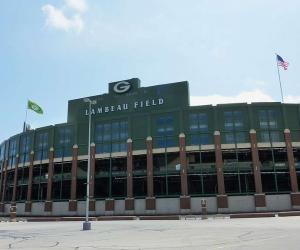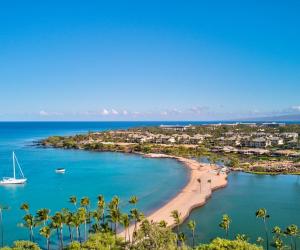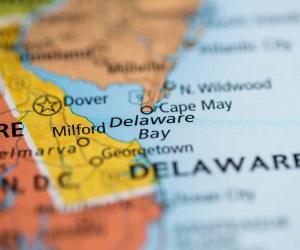Discover the Largest Cities in New Hampshire (By Population, Total Area, and Economic Impact)
New Hampshire is known for many things, and one of them is having the shortest coastline in the U.S. It’s a small New England state with a lot of charm, but its handful of cities are small in comparison to most major cities. Explore the largest cities in New Hampshire in terms of population, area, and economic impact.
Largest Cities in New Hampshire by Population
New Hampshire is the 42nd most populous state with a population of 1.395 million in 2022 per the New Hampshire Department of Business and Economic Affairs. Many of the entries in the top five largest “cities” aren’t technically cities because the state is so small.
| Rank | City | Population (2022) |
| 1 | Manchester | 116,161 |
| 2 | Nashua | 92,515 |
| 3 | Concord | 44,111 |
| 4 | Derry | 34,627 |
| 5 | Dover | 33,234 |
Manchester
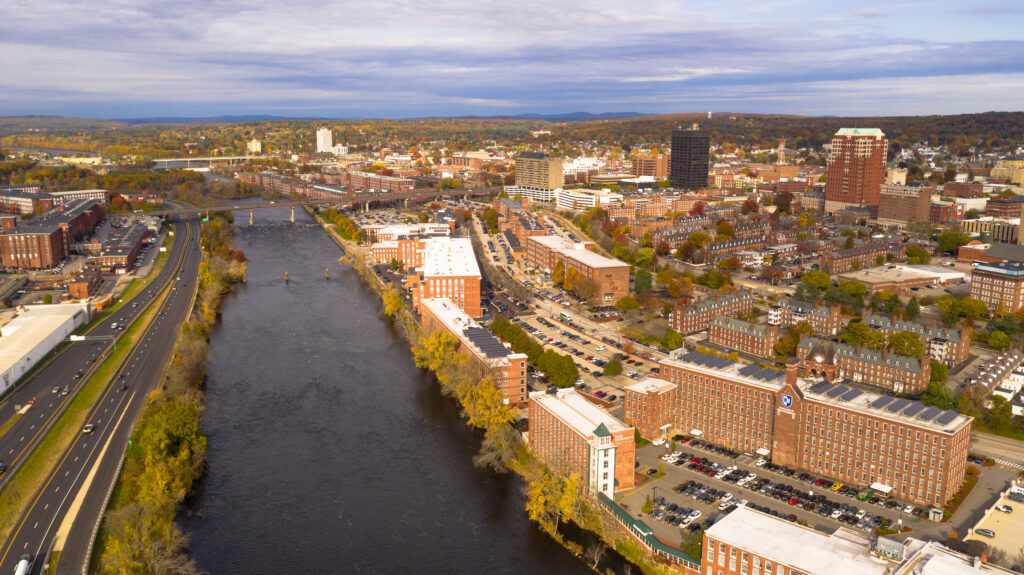
©iStock.com/ChrisBoswell
With a population of 116,161, Manchester is the largest city in New Hampshire. Yet, it’s not even the state’s capital, so why is Manchester the most populous? Its location and role in the Industrial Revolution explain why. Situated less than an hour from New England’s largest city, Boston, and only 18 miles from New Hampshire’s state capital, it’s in a great location for transportation with buses, trains via Amtrak, or flights from Manchester-Boston Regional Airport. Plus, the I-93 travels through the city.
Manchester is home to the state’s only professional sports team, the New Hampshire Fisher Cats. It’s also home to a large concert and sports venue, museums, shops, and restaurants. Residents enjoy a thriving city with attractions for every interest.
Nashua
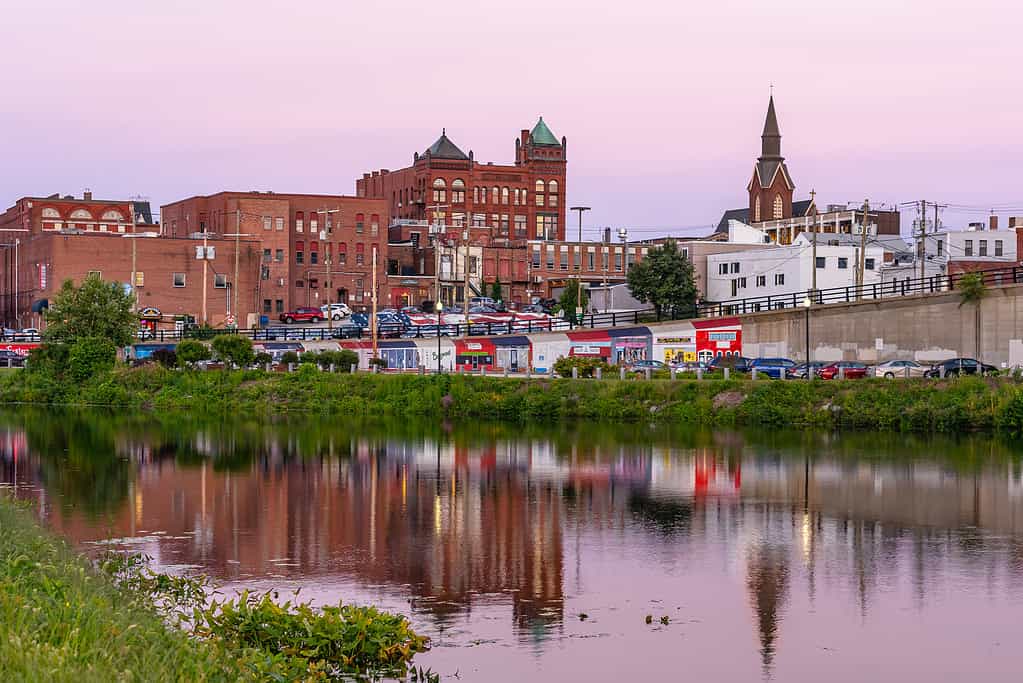
©Sergey-AND-Marina/iStock via Getty Images
With a population of 92,515, Nashua is the second most populous city. The city sits on the southeastern border of New Hampshire and Massachusetts. It’s home to Symphony NH, a symphony orchestra founded by Clayton Eaton in 1923.
Like Manchester, the textile industry shaped Nashua years ago, but the 1922 New England Textile Strike caused mills to close. The city’s economy shifted to technology, with the Magnavox Odyssey manufactured here. With Boston just an hour to the south, Nashua is in the perfect location for residents looking for easy access to the larger city and an abundance of employment opportunities in the tech sector.
Concord
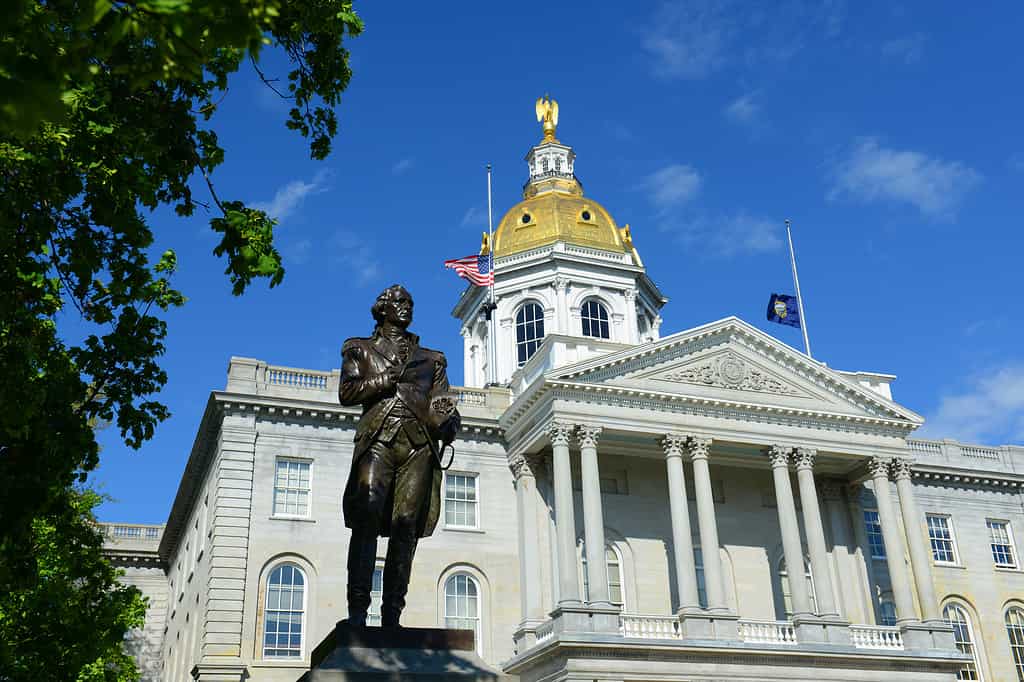
©iStock.com/jiawangkun
Concord is the state capital, but its small population of 44,111 keeps it from being the most populous city. Abenaki settled the area, using the nearby Merrimack River to catch salmon for feed, while also growing their crops in the rich floodplain soils. Nearby granite quarries provided jobs as the population grew, and the granite was used to establish the ornate New Hampshire State House.
Derry
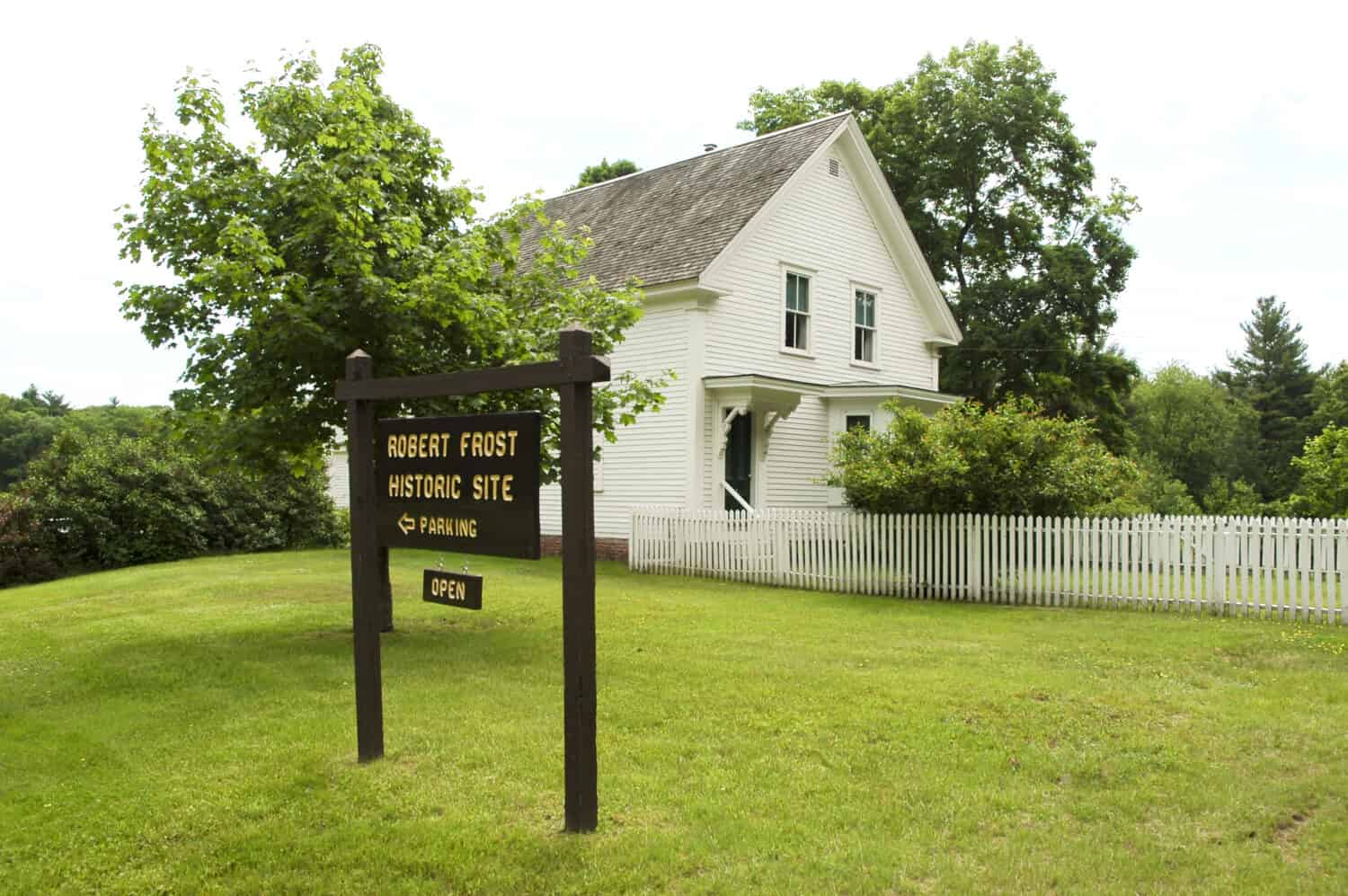
©Jeffrey M. Frank/Shutterstock.com
The population in Derry is 34,627, which puts it at number four in terms of population. It’s best known as the area Robert Frost and his new wife called home from 1900 to 1911, which is now the Robert Frost Farm. It’s also the site of the first potato crops in the U.S., as Scottish and Irish families settled the region and planted potatoes in the town’s common field. Pinkerton Academy, the oldest private school in the nation, calls Derry home and helps explain why many residents work in education.
Dover
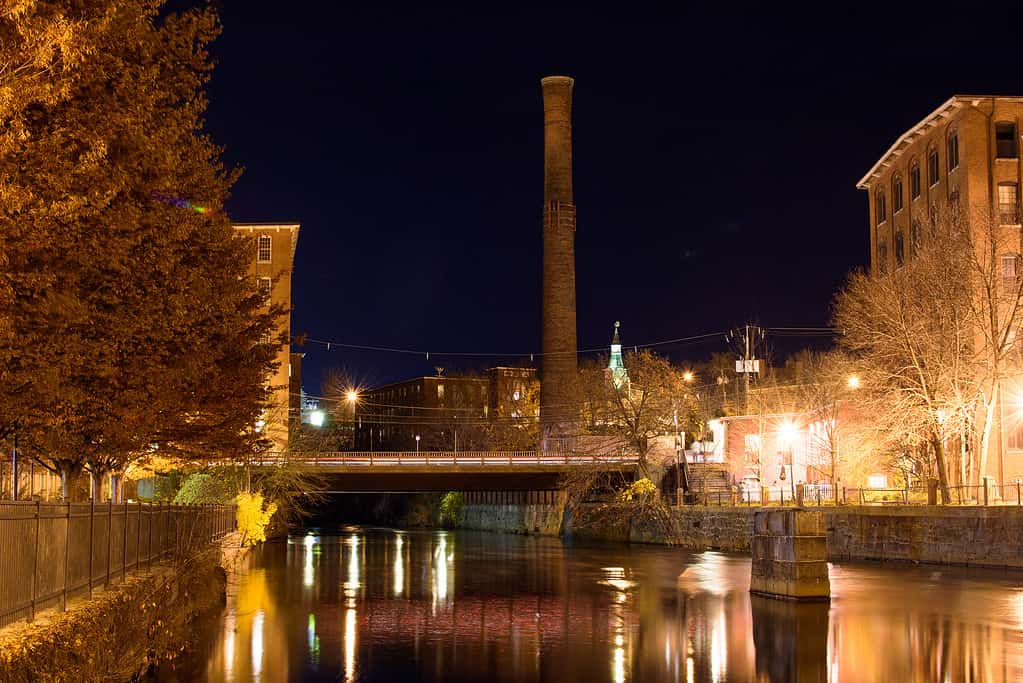
©mountinez/iStock via Getty Images
Finally, the fifth most popular city in New Hampshire is Dover with a population of 33,234. Dover is closer to the coast than the other cities. Its foundations go back to the 1600s when a group of English Puritans purchased a salt plantation. After the textile industry collapsed, Dover revitalized into an area for people looking to live and work near Portsmouth without paying the higher housing prices.
Largest Cities in New Hampshire by Total Area
If you look at the list of the three largest cities in New Hampshire by total area, it’s a drastic difference. The areas with the largest square acreage are considered towns rather than cities.
| Rank | Town/City | Total Area/Sq. Miles |
| 1 | Pittsburg | 281.4 |
| 2 | Lincoln | 130.3 |
| 3 | Bethlehem | 90.6 |
1. Pittsburg
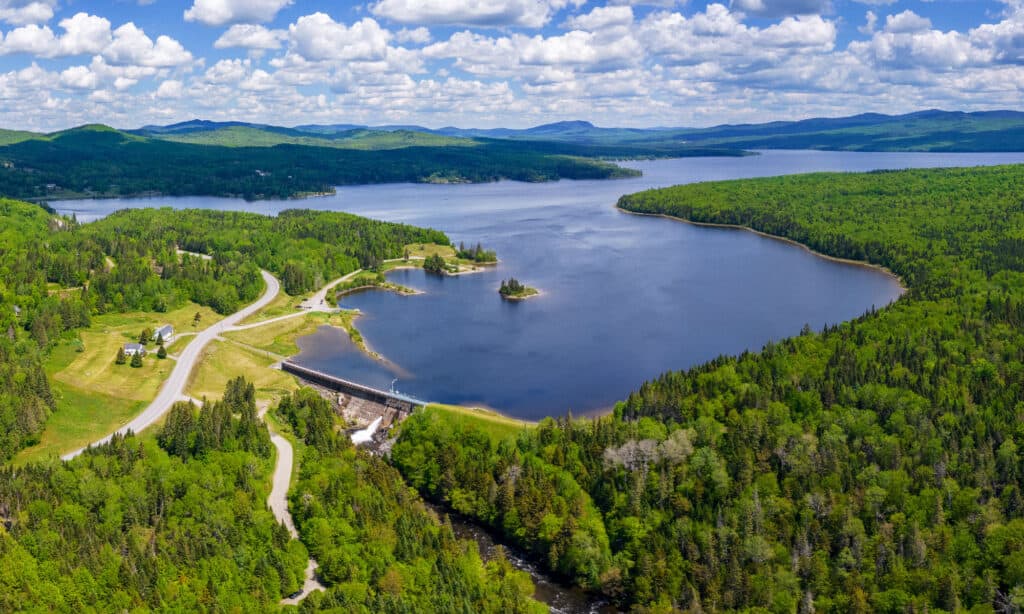
©NEKVT/Shutterstock.com
Part of “The Great North Woods,” Pittsburg is the northernmost town and abuts the Canadian border. The total area is 281.4 square miles, which is 180,096 acres. This is a town for a person with the love of the outdoors with hunting, fishing, kayaking, and hiking being popular activities. ATV and snowmobile trails cross the town leading into Vermont and Maine.
2. Lincoln

©Jason Heid/Shutterstock.com
Lincoln’s land area is 130.3 square miles, which is 83,392 acres. It’s popular with tourists and residents alike as the White Mountain National Forest and Franconia Notch State Park, and Loon Mountain Ski Resort are all in town.
Franconia Notch State Park is home of Lonesome Lake and the Flume Gorge, which is a popular nature trail passing through the granite walls that form the flume and waterfalls. People used to come to Franconia Notch State Park to see the rock formation endearingly called “The Old Man of the Mountain,” but the rocks forming his face fell off in 2003.
3. Bethlehem
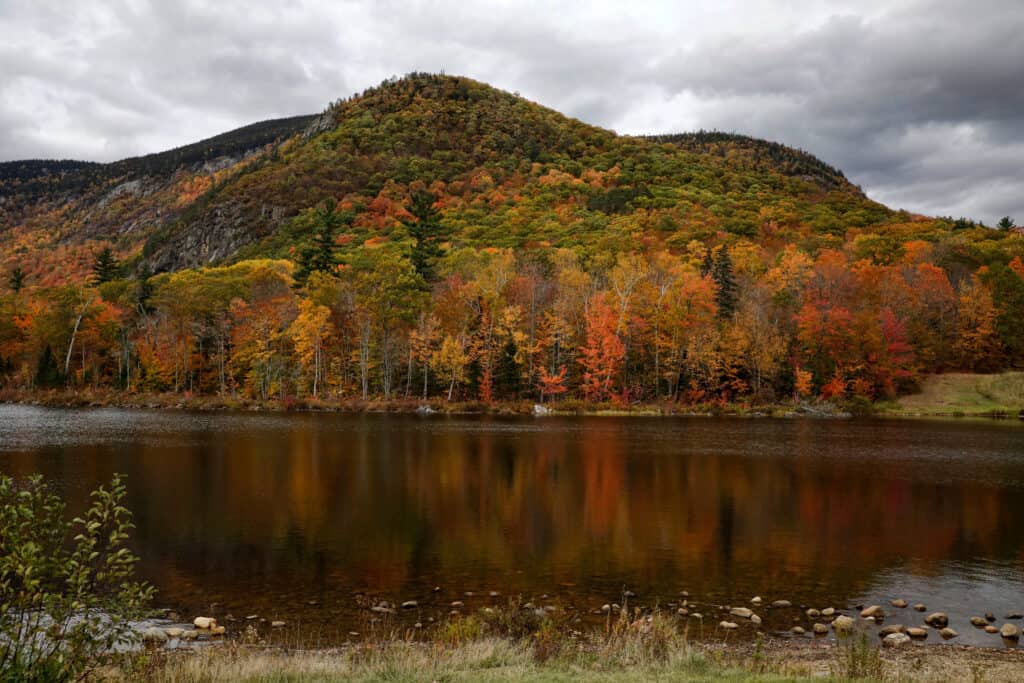
©Rhona Wise/Shutterstock.com
Bethlehem covers 90. 6 square miles or 57,984 acres, and the eastern portion of town is in the White Mountain National Forest. This town is a popular tourist destination, and a gorgeous place to go for fall foliage. Mount Washington Cog Railway is nearby and is a breathtaking train ride straight up to the top of Mount Washington. With nature trails, shopping, arts, and golf courses within Bethlehem, there’s plenty to do.
Largest Cities in New Hampshire by Economic Impact
New Hampshire’s residents work in a variety of industries, and some people commute to larger cities like Boston, which does impact the state’s GDP. New Hampshire Employment Security estimates there are 659,220 jobs within the state. Of those jobs, the top occupations are:
- Office and administration
- Sales
- Foodservice
- Transportation/material moving
- Business and financial operations
- Education
- Healthcare
In 2022, the GDP grew by approximately 2.6%, and hourly wages went up 16%, with an average weekly salary of $1,098. Two cities had the highest GDPs that the Federal Reserve Bank of St. Louis combined in its report.
| Rank | City/Town | Gross Domestic Product (GDP) in 2021 |
| 1 | Manchester | $32.7 million (combined with Nashua) |
| 2 | Nashua | $32.7 million (combined with Manchester) |
1. Manchester
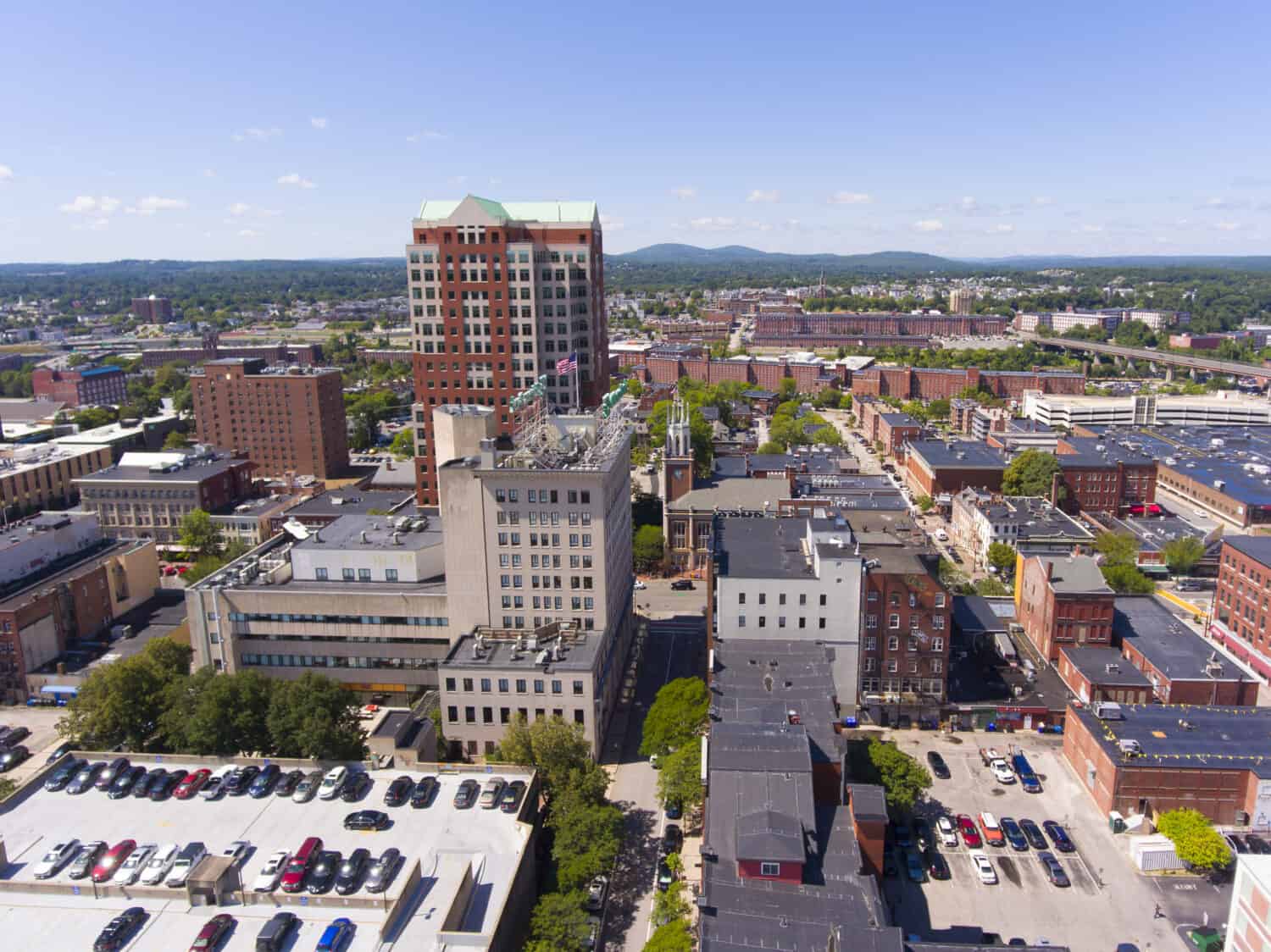
©Wangkun Jia/Shutterstock.com
Manchester has both the largest population and the largest GDP in New Hampshire. It’s a popular city for tourism, but it’s more than that due to its regional airport, convenience to Boston, and historic buildings that provide picturesque spaces for museums, shops, restaurants, and businesses. Three sectors provide many of the area’s jobs and revenue.
Education
Manchester’s 300-acre Southern New Hampshire University campus employs thousands of professors, adjunct professors, administrators, office workers, food service workers, and security staff. In addition to the university, The Manchester School District employs hundreds.
Healthcare
According to New Hampshire’s GraniteStats’ database, Dr. Mark H. Kiessling’s cardiology office, a branch of Dartmouth-Hitchcock, is the city’s largest employer. Elliot Hospital and the Catholic Medical Center are also in the area and hire thousands of workers, plus they provide area residents with urgent and specialty care.
Manufacturing
Given Manchester’s rich history in the textile industry, it’s easy to understand why the city progressed to manufacturing. Companies like Velcro, USA and Burndy Americas hire hundreds of workers. Allegro Microsystems, Inc. is the largest of all with revenues of $973.65 million, which tops Velcro ($603.62 million) and Burndy Americas ($490.27 million).
2. Nashua
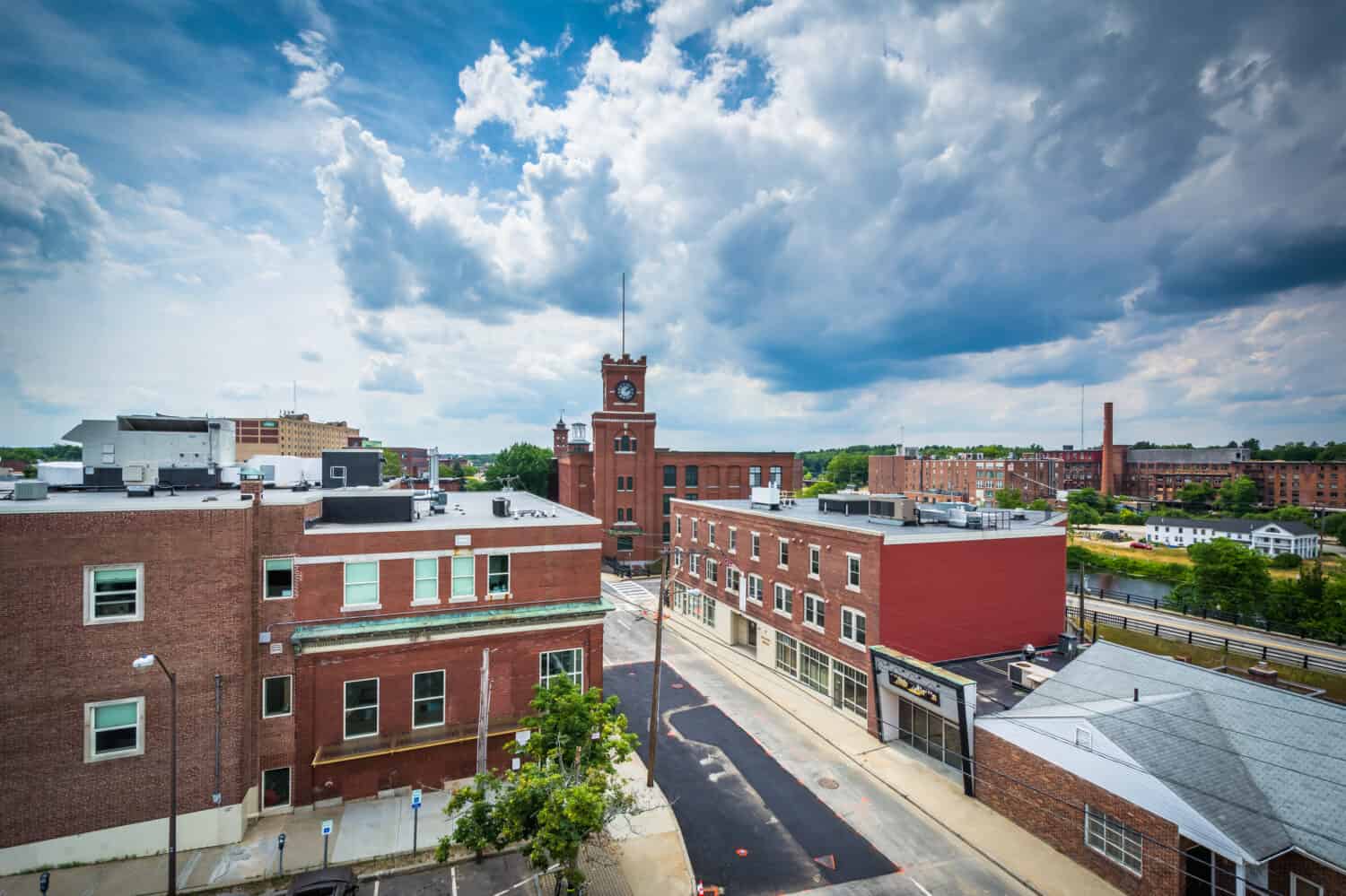
©Jon Bilous/Shutterstock.com
Nashua is closer to Boston than Manchester, making it a top choice for tech companies looking to expand into New Hampshire’s tax-free structure. The three largest sectors for the GDP are healthcare, manufacturing, and technology.
Healthcare
Nashua has two hospitals providing area residents with a range of healthcare services. St. Joseph Hospital and Southern New Hampshire Medical Center are the second and third largest employers in Nashua, hiring more than 3,900 workers combined.
Manufacturing
As Nashua is a main hub, making it easy to get to Boston by interstate, manufacturing remains a key industry within the city. It’s been that way since the textile mills opened. An abundance of manufacturing companies provide jobs in Nashua. Benchmark Electronics specializes in automation, robotics, surveillance, and other aspects of advanced manufacturing and engineering.
Technology
One of the biggest companies in technology sits at 300 Innovative Way. Dell Technologies sells computers and computer equipment and hires hundreds of workers at the Nashua facility. Nashua’s Bae Systems is the largest employer in the city and boasts revenues of $1.479.39 million per year.


